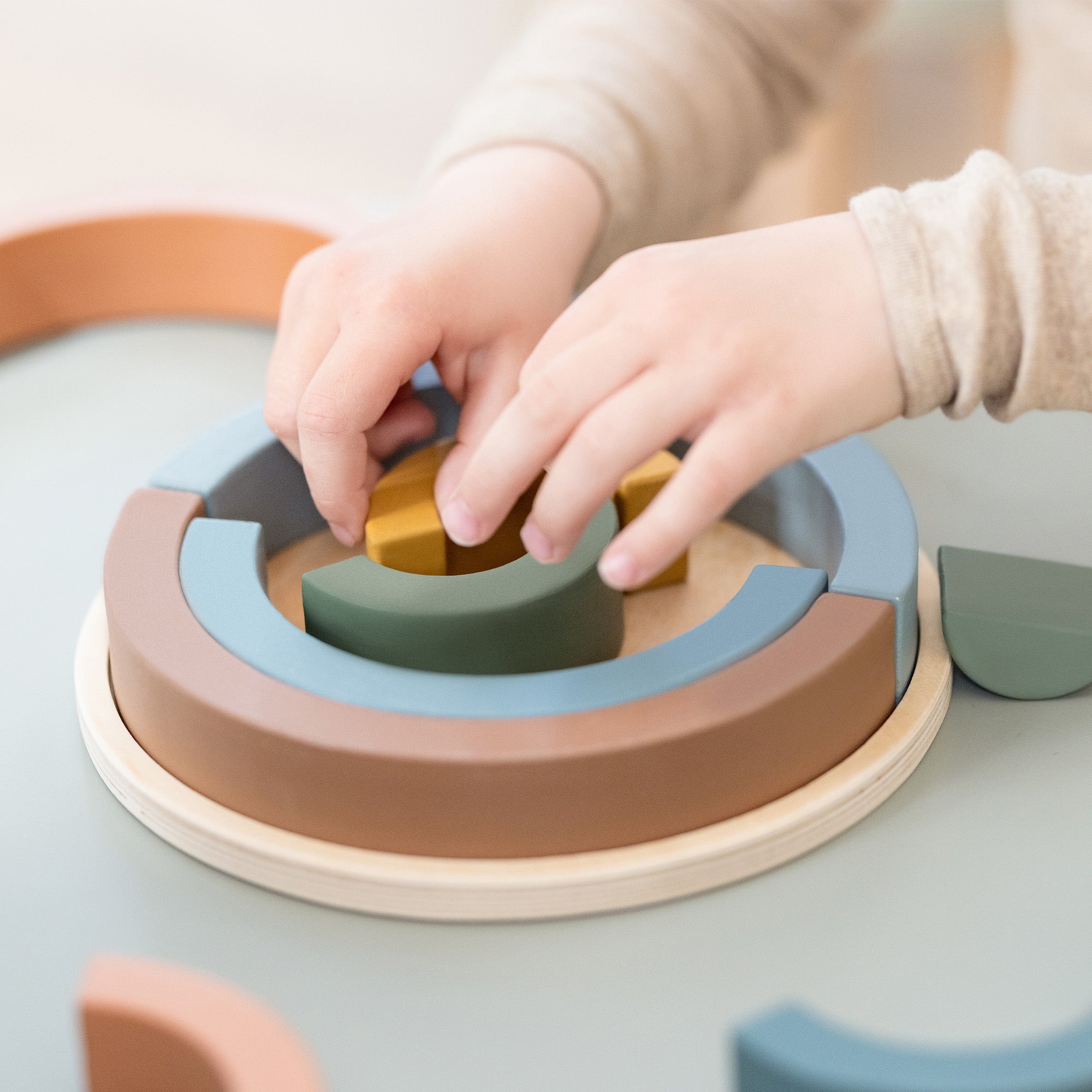Little by little, piece by piece, puzzles help your child develop important skills. To complete a puzzle – whether it’s a five-piece peg puzzle or a one-hundred-piece jigsaw puzzle – your little Einstein must practice fine motor precision, deep concentration, and mathematical thinking, to name but a few skills. Other more surprising benefits of completing a puzzle are enhanced visual perception and improved social skills. Read on to learn more.
Highlights:
- Puzzles put your child’s mind and body to work. Puzzles help to:
- Develop your child’s fine motor skills and improve their hand-eye coordination.
- Improve your child’s ability to concentrate and stay focused on one task at a time.
- Feed your child’s brain, especially their mathematical thinking.
- Enhance your little one’s visual perception and eye for details.
- Teach social skills, empathy, and communication skills when playing with others.
One Toy – Multiple Benefits
Puzzles put your child’s mind and body to work, all at once. Danish expert in children’s play, Joern Martin Steenhold, explains the multifold benefits of doing a puzzle:
Puzzles Develop Fine Motor Skills
Toddlers and small children exercise their fine motor skills when they do Puzzles. Grasping and fiddling with puzzle pieces activates the smaller muscles in your child’s hands and wrists, while selecting and placing the individual pieces improves your child’s hand-eye coordination.
Puzzles Improve your Child’s Concentration
To solve a puzzle, your little one must learn to concentrate their attention on the task at hand. Which colour to go with at this point? Which piece did I already try with? With puzzles, your little one can really get caught up and almost forget about time and place for a moment – a nice brain-break from all the hustle and bustle of a busy everyday life.
Puzzles are Excellent Brain Food
Completing a puzzle is a fun way for your child to practice basic math skills such as categorising, spotting correlations, predicting outcomes, and decoding abstract patterns. Plus, puzzles can’t be cheated and with every completed puzzle, your child learns a new set of tactics.
Puzzles Enhance Visual Perception
Each puzzle-piece is part of a bigger picture and this teaches your little one to see the big picture, while still having an eye for the detail. Your child’s visual perception is trained, and your child learns to distinguish between differences in dimensions, shapes, sizes, and colours.
Puzzles Teach Social Skills
Try doing a puzzle together with your child. The experience of reaching a goal by joint effort is an important one. In the process, your child learns to decode other people’s feelings, to be part of a team, and to rely on others for help and guidance. This not only promotes your child’s empathy and integrity but also verbal and non-verbal communication skills.
So, get out your child’s puzzles and have fun while your little one learns a great deal too!

